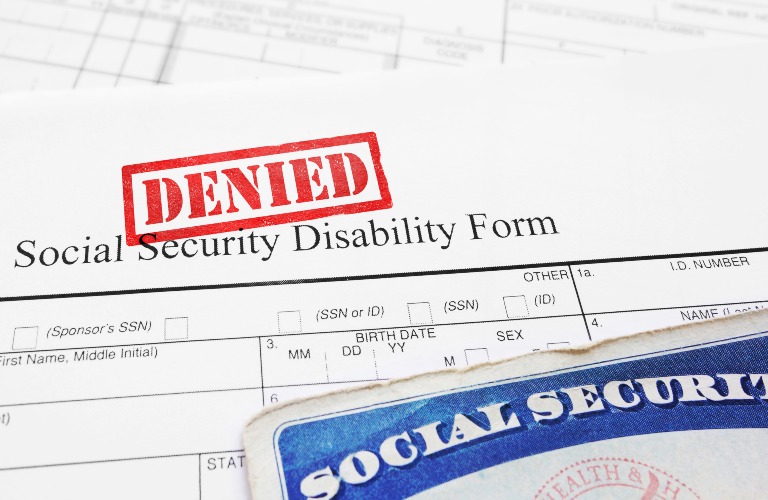
Unfortunately, a typical part of the application process for Social Security Disability Insurance for many applicants is a denial letter. Receiving such a letter can be a discouraging event leaving you wondering if they should have applied in the first place, and if you decide to continue your pursuit of SSDI benefits, the next appeal step can sound daunting, to say the least. Is it worth it to appeal an SSDI denial? Tabak Law has years of experience in Social Security benefits, and we can help you understand the next steps and hopefully make it seem less scary.
Is Appealing a Disability Denial Beneficial?

When you get denied for SSDI benefits the first time, you will receive the notice by mail. This is true for nearly all official SSDI communication. This letter will let you know what your next available steps are including the timeline that those steps must be taken in. The first step will be a re-consideration or review. At this point, you will also be able to include any additional information about your case.
Read More: What Can Disqualify You From SSDI?
What is the SSDI Review Process?
Before your case can go up the ladder to a judge, it will go through a review process. This essentially means that your case will be sent through a second time, only this time it will be reviewed by someone else. This second person will still be in the same office, and this process rarely yields different results than the first time through, but if you were to re-apply instead, then your case could be reviewed by the same person.
Again, don’t be discouraged if you get denied a second time at this stage. This is very common as it is the same office following the same guidelines that is making the decision. The important part here is that going through the second review opens up your next and last option—getting your case in front of a judge.
Do You Want Your Case Heard Before an SSDI Judge?
SSDI judges are called Administrative Law Judges, or ALJs. These judges are not part of the Social Security office that reviewed your case. They will look over your case with a fresh set of eyes and make a final determination. If they approve your benefits, then there is nothing further you need to do in the process. If they deny it, then you will have to start over.
Having your case heard in front of a judge can be a little frightening, but luckily this part of the process actually has the highest approval rate. Higher even than the initial process. In part, this is because only people that genuinely need SSDI push through to this step. Unfortunately, there are plenty of people that genuinely need it that don’t continue this far too, which is why we encourage you not to give up.
Another reason for the high approval rate at this stage is that many people will seek the help of an experienced SSDI lawyer before they have their SSDI case heard in front of a judge. Overall, getting legal help can drastically increase your chances of being approved. Reach out to Tabak Law today for a free case review.
Should You Reapply for SSDI Benefits?
When facing your denial, some people may think that re-application should be the next step. There are only a few circumstances where you should do this.
- Failed to Appeal—If you failed to appeal your SSDI denial in time, then the only way to start the process again is to re-apply
- Final Denial—At the end of the appeal process, a judge—known as an administrative law judge or ALJ—will make the final determination. If the ALJ denies the claim, then the process is over and your only remaining option to receive SSDI benefits is to reapply. At this point, you should definitely seek an attorney’s help.
- A Change in your Medical Condition—If your medical condition has gotten worse, especially in a significant way or in a way that was not anticipated by your currently submitted medical history and documentation. Then it may be worth starting over. This is another chance to get a lawyer involved to see if there is any assistance they can provide.
What Can Make You Lose Your SSDI Benefits?
Nothing posted on this website is intended, nor should be construed, as legal advice. Blog postings and site content are available for general education purposes only.
